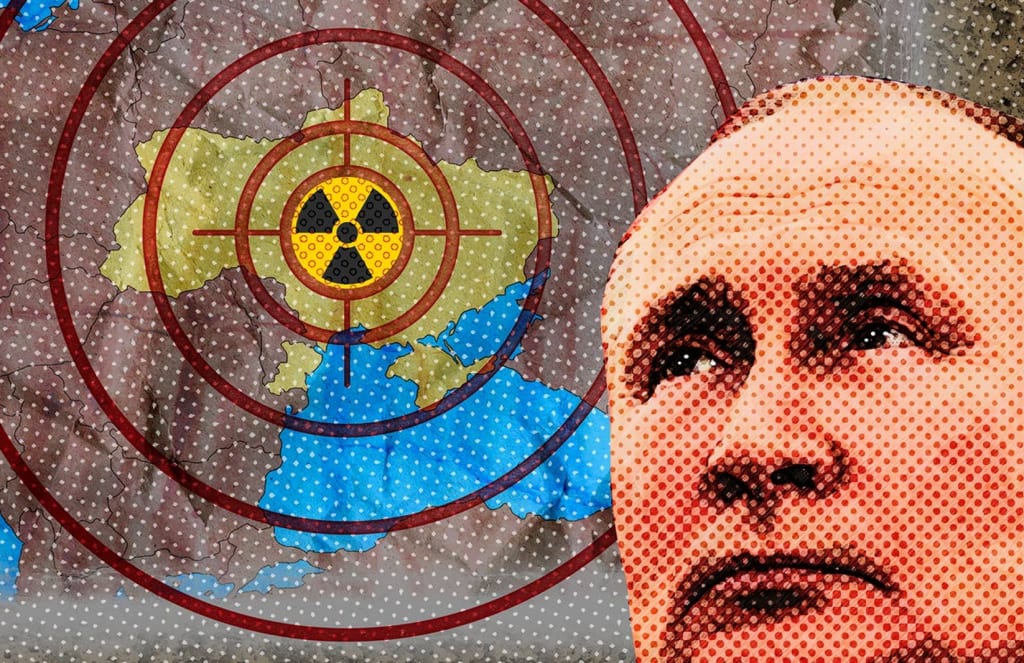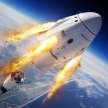
Introduction
Russia's possession of nuclear weapons has long been a topic of concern for the international community. The potential for catastrophic consequences in the event of nuclear weapon use has led to efforts to prevent the proliferation of these weapons and to promote disarmament. Despite these efforts, Russia maintains a large and sophisticated nuclear arsenal, and questions remain about the circumstances under which it might use these weapons.
In this article, we will explore Russia's nuclear doctrine and the factors that influence its decision-making regarding nuclear weapons. We will examine potential scenarios for nuclear weapon use, including escalation in conventional conflict, response to a nuclear attack, preemptive strike against a perceived threat, and accidental or unauthorized use. We will also analyze the risks and consequences of nuclear weapon use, including humanitarian and environmental consequences, geopolitical implications, and escalation risks.
Additionally, we will consider Russia's nuclear posture in the global context, including its relationships with other nuclear-armed states, its role in arms control and disarmament efforts, and its impact on global nuclear governance.
By examining Russia's nuclear doctrine and posture, we can gain a better understanding of the potential for nuclear conflict and the importance of continued efforts to prevent nuclear proliferation and promote disarmament.
Russia's nuclear doctrine
Russia's nuclear doctrine is a set of guidelines that dictate the circumstances under which it can use nuclear weapons. The doctrine has evolved over the years in response to geopolitical developments, changes in military technology, and domestic political considerations. The current doctrine, which was last updated in 2014, reflects Russia's perceived strategic environment and its priorities for national security.
A. Historical context of Russia's nuclear doctrine:
The Soviet Union developed its nuclear doctrine in the late 1940s in response to the United States' development of nuclear weapons. The Soviet doctrine emphasized the use of nuclear weapons as a deterrent against a possible US attack. The doctrine was premised on the idea of mutually assured destruction (MAD), which posits that any use of nuclear weapons by either side would result in catastrophic consequences for both sides.
After the collapse of the Soviet Union, Russia inherited the Soviet nuclear arsenal and had to develop a new nuclear doctrine. In the 1990s, Russia's nuclear doctrine shifted away from MAD towards a more flexible approach that emphasized the use of nuclear weapons in response to non-nuclear threats. However, Russia's 2014 update to its nuclear doctrine returned to the principles of MAD.
B. Current nuclear doctrine:
Russia's current nuclear doctrine, as outlined in the 2014 military doctrine, is based on four pillars: deterrence, preemption, escalation control, and de-escalation. The doctrine emphasizes the importance of nuclear weapons as a tool for deterrence against potential threats, but also acknowledges the possibility of preemptive use of nuclear weapons in certain circumstances. The doctrine also outlines the importance of maintaining strategic stability and avoiding unintended escalation.
The 2014 doctrine also broadened the definition of threats to include not just military threats but also political, economic, and informational threats. This expanded definition has led to concerns that Russia may use nuclear weapons in response to non-military threats, such as cyberattacks or economic sanctions.
C. Factors influencing nuclear decision-making in Russia:
Several factors influence Russia's decision-making regarding nuclear weapons. One of the key factors is Russia's perception of the threat environment. Russia sees itself as facing a hostile NATO alliance and the United States, which it believes are seeking to contain and weaken Russia. This perception has led to a more assertive Russian foreign policy and an increased emphasis on nuclear weapons as a tool for deterrence.
Domestic politics also play a role in Russia's nuclear decision-making. The Russian leadership, including President Vladimir Putin, have emphasized the importance of maintaining a strong military and protecting Russia's sovereignty. Nuclear weapons are seen as a symbol of Russian strength and a crucial element of national security.
Finally, technological developments have also influenced Russia's nuclear doctrine. The development of missile defense systems by the United States and its allies has prompted Russia to develop new nuclear weapons systems, such as hypersonic missiles, to counteract these defenses.
Overall, Russia's nuclear doctrine reflects its perception of the threat environment and its priorities for national security. The doctrine emphasizes the importance of nuclear weapons as a tool for deterrence, but also acknowledges the possibility of preemptive use in certain circumstances. Understanding Russia's nuclear doctrine is crucial for assessing the risk of nuclear conflict and promoting global disarmament efforts.
Potential scenarios for nuclear weapon use
While the use of nuclear weapons is a highly unlikely and undesirable outcome, it is important to consider the potential scenarios in which Russia might use these weapons. Understanding these scenarios can help to identify areas of concern and inform policy decisions aimed at preventing nuclear conflict.
A. Escalation in conventional conflict:
One scenario in which Russia might consider using nuclear weapons is in response to an escalation in a conventional conflict. If Russia perceives that its territorial integrity or national security is at risk, it may consider using nuclear weapons to deter further aggression or to inflict significant damage on the opponent. This scenario is particularly concerning given the potential for miscalculation or unintended escalation, which could lead to a full-scale nuclear war.
B. Response to a nuclear attack:
Another scenario in which Russia might use nuclear weapons is in response to a nuclear attack. If Russia were to suffer a nuclear attack, it might feel compelled to respond in kind to deter future attacks and to demonstrate its resolve. This scenario is particularly dangerous given the potential for a nuclear exchange that could cause catastrophic consequences for both sides.
C. Preemptive strike against a perceived threat:
Russia's nuclear doctrine allows for the possibility of preemptive use of nuclear weapons in certain circumstances, such as in response to a conventional attack that threatens the state's existence or the use of weapons of mass destruction against Russia or its allies. If Russia perceives a threat to its national security that cannot be addressed through conventional means, it might consider a preemptive nuclear strike to neutralize the threat. This scenario is particularly concerning given the potential for a preemptive strike to escalate into a full-scale nuclear war.
D. Accidental or unauthorized use:
Finally, there is a risk of accidental or unauthorized use of nuclear weapons. Despite robust command and control systems, accidents and errors can occur, and there is always the potential for unauthorized individuals to gain access to nuclear weapons. This scenario is particularly concerning given the potential for a nuclear exchange to occur without proper authorization or oversight.
Overall, the potential scenarios for nuclear weapon use underscore the importance of preventing nuclear conflict through arms control and disarmament efforts, crisis management, and confidence-building measures. Understanding the risks and consequences of nuclear weapon use can help to inform policy decisions aimed at promoting global security and preventing nuclear proliferation.
Factors that could influence Russia's decision to use nuclear weapons
While the scenarios outlined in the previous section provide a framework for understanding the potential circumstances in which Russia might use nuclear weapons, there are a number of factors that could influence Russia's decision-making in these scenarios.
A. Military doctrine and strategy:
Russia's military doctrine and strategy provide a framework for understanding its approach to nuclear weapons. Russia's nuclear doctrine emphasizes the use of nuclear weapons in response to a nuclear attack, as well as the possibility of preemptive use in certain circumstances. Understanding Russia's military doctrine and strategy can provide insight into its decision-making regarding nuclear weapons.
B. Perceived threats and risks:
Russia's perception of threats and risks can also influence its decision to use nuclear weapons. If Russia perceives a significant threat to its territorial integrity or national security, it may be more likely to consider the use of nuclear weapons. Similarly, if Russia perceives a high level of risk associated with a particular scenario, it may be more likely to consider the use of nuclear weapons as a means of addressing that risk.
C. Domestic political considerations:
Domestic political considerations can also play a role in Russia's decision-making regarding nuclear weapons. If Russian leadership feels pressure to demonstrate its resolve or to respond to public opinion, it may be more likely to consider the use of nuclear weapons as a means of addressing a particular situation.
D. International norms and pressures:
International norms and pressures can also influence Russia's decision-making regarding nuclear weapons. If Russia perceives significant pressure from the international community to disarm or to refrain from using nuclear weapons, it may be less likely to consider the use of these weapons. Conversely, if Russia perceives that it is facing significant international pressure or isolation, it may be more likely to consider the use of nuclear weapons as a means of asserting its sovereignty and defending its interests.
E. Technical and operational factors:
Finally, technical and operational factors can also influence Russia's decision-making regarding nuclear weapons. If Russia perceives that its command and control systems are unreliable or vulnerable to attack, it may be more hesitant to use nuclear weapons. Similarly, if Russia perceives that its nuclear arsenal is not capable of achieving its objectives, it may be less likely to consider the use of these weapons.
Overall, a range of factors can influence Russia's decision to use nuclear weapons. Understanding these factors can help to inform policy decisions aimed at preventing nuclear conflict and promoting global security.
Risks and consequences of nuclear weapon use
The risks and consequences of nuclear weapon use are significant and far-reaching. Even a limited nuclear exchange could cause catastrophic humanitarian and environmental consequences, and a full-scale nuclear war could potentially result in the end of human civilization.
A. Humanitarian consequences:
The immediate humanitarian consequences of a nuclear detonation are catastrophic. A nuclear explosion can cause significant blast, thermal, and radiation effects, resulting in large-scale casualties and long-term health effects. In addition to the direct effects of the explosion, a nuclear exchange could also disrupt critical infrastructure, such as hospitals and transportation systems, further exacerbating the humanitarian impact.
B. Environmental consequences:
Nuclear weapon use can also have significant environmental consequences. A nuclear explosion can produce radioactive fallout, which can contaminate soil, water, and the air, with long-lasting effects on the environment. In addition to the immediate environmental impact, a nuclear exchange could also cause significant climate disruption, including a potential "nuclear winter" effect that could significantly reduce global temperatures and disrupt food production.
C. Geopolitical consequences:
The geopolitical consequences of nuclear weapon use are also significant. A nuclear exchange could result in the collapse of international norms and institutions, further exacerbating global instability and conflict. In addition to the immediate consequences, a nuclear exchange could also have long-lasting effects on regional and global power dynamics, potentially leading to significant shifts in the balance of power.
D. Proliferation consequences:
The use of nuclear weapons could also have significant proliferation consequences. If one country were to use nuclear weapons, it could set a dangerous precedent for other countries to follow. In addition, the use of nuclear weapons could increase the perceived value of these weapons, leading to increased efforts by other countries to acquire or develop their own nuclear arsenals.
Overall, the risks and consequences of nuclear weapon use are severe and far-reaching. Preventing nuclear conflict through arms control and disarmament efforts, crisis management, and confidence-building measures remains critical to promoting global security and preventing nuclear proliferation.
Russia's nuclear posture in the global context
Russia's nuclear posture has significant implications for global security, and understanding its approach to nuclear weapons is essential for developing effective arms control and disarmament policies.
A. Russia's role in nuclear arms control:
Russia plays a significant role in global efforts to control and reduce nuclear arms. The New START treaty, which limits the number of deployed strategic nuclear weapons and delivery systems, remains a cornerstone of US-Russia arms control efforts. In addition, Russia has participated in a range of multilateral disarmament initiatives, including the Non-Proliferation Treaty (NPT) and the Comprehensive Test Ban Treaty (CTBT).
B. Russia's nuclear posture and strategic stability:
Russia's nuclear posture is also closely tied to strategic stability, or the overall balance of power between nuclear-armed states. Russia's nuclear capabilities play a significant role in deterring potential adversaries and preserving its strategic interests. However, Russia's nuclear posture could also contribute to increased instability and the potential for accidental or inadvertent nuclear use.
C. Russia's relationship with other nuclear-armed states:
Russia's relationship with other nuclear-armed states, including the United States and China, also has significant implications for global security. As the United States and Russia continue to modernize their nuclear arsenals, there is concern that an arms race could develop, potentially leading to increased tensions and a greater risk of nuclear conflict. Similarly, as China's nuclear capabilities continue to grow, there is concern about the potential for increased competition and instability in the region.
D. Implications for global nuclear disarmament:
Finally, Russia's nuclear posture has significant implications for global efforts to achieve nuclear disarmament. As one of the world's largest nuclear-armed states, Russia's actions and policies could significantly impact the trajectory of disarmament efforts. In addition, Russia's continued reliance on nuclear weapons could provide a rationale for other countries to maintain or acquire their own nuclear capabilities.
Overall, Russia's nuclear posture is a critical factor in global efforts to prevent nuclear conflict and promote disarmament. Understanding Russia's approach to nuclear weapons, as well as its role in global arms control efforts, is essential for developing effective policies aimed at promoting global security and reducing the risk of nuclear war.
Conclusion
In conclusion, the question of whether Russia will use nuclear weapons is a complex and multifaceted issue that requires a careful examination of Russia's nuclear doctrine, potential scenarios for nuclear weapon use, factors that could influence Russia's decision to use nuclear weapons, risks and consequences of nuclear weapon use, and Russia's nuclear posture in the global context. While the risk of nuclear conflict remains a significant concern, there are also reasons to be optimistic about the potential for arms control and disarmament efforts to promote global security and reduce the risk of nuclear war. Ultimately, preventing nuclear conflict requires continued efforts to promote dialogue and cooperation between nuclear-armed states, reduce the role of nuclear weapons in national security strategies, and work towards the ultimate goal of global nuclear disarmament.
About the Creator
Samuel
I write about Science/Tech/Business & Anything that can give value to people ❤️
I'm on YouTube too guys feel free to check out my channel here: www.youtube.com/@sambladeco






Comments
There are no comments for this story
Be the first to respond and start the conversation.